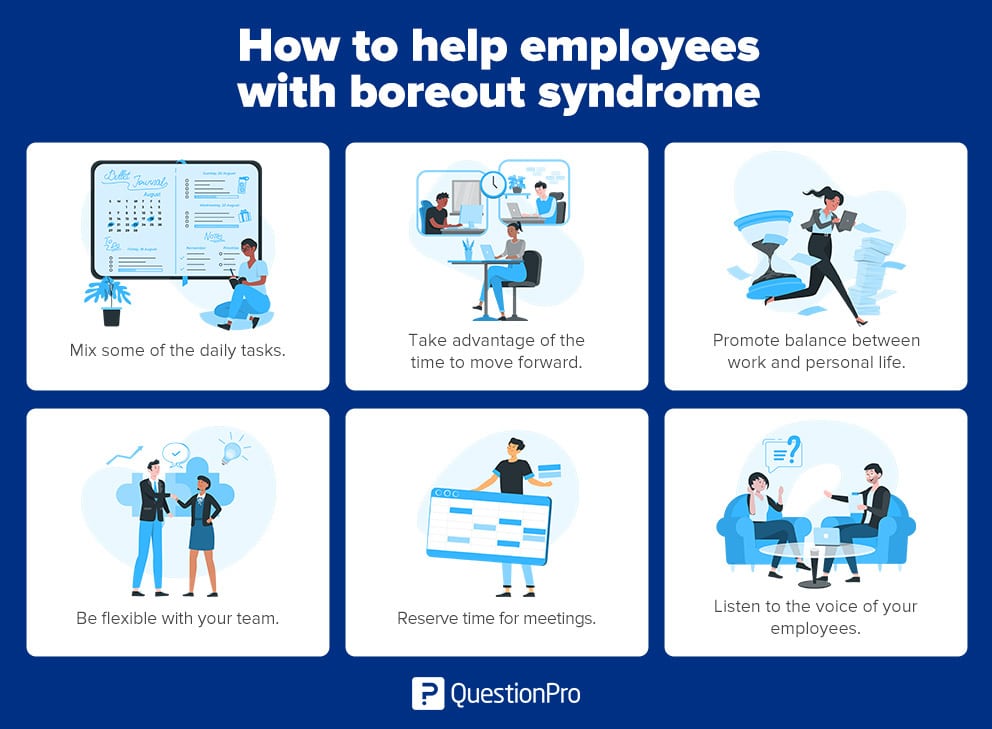You may have been misdiagnosed with burnout.
Instead, “boreout syndrome” is sweeping cubicles across the country, Forbes reports.
Rather than being overwhelmed, the hallmark symptom of burnout, employees who are “bored-out” exhibit disengagement, feeling underwhelmed and are mentally clocked out, according to the outlet.
Read also:African Art Tattoo
“Elements that can contribute to this can include factors such as working in the same role with the same responsibility for an extended period, not seeing clear opportunities for growth or having minimal interactions with colleagues that are socially stimulating,” Spring Health’s chief people officer Karishma Patel Buford told Forbes, adding that a non-stimulating work environment can also be a contributing factor.
While it’s not necessarily a new phenomenon, experts say the trend is perpetuated by the current “Great Disengagement,” also dubbed the “Great Detachment,” in which employees are actively disengaging from work — and it’s only a matter of time before they “quiet quit.”
Gallup data published last year showed a 5% decline in engagement among Gen Z and young millennials and a 7% drop in engagement among older millennials. According to the survey, disengagement costs $8.8 trillion globally in productivity.
“It’s no secret that we’re in the middle of an employee disengagement crisis,” Annie Rosencrans, the director of people and culture at HiBob, told the publication. “And while some of them have initially stemmed from burnout, we’re now seeing the opposite challenge come to life with ‘boreout.’”
As a result, business’ innovation can suffer, according to author and L.E.K Consulting partner and managing director Ilya Trakhtenberg, who told Forbes that “‘boreout’ reduces an organization’s ability to innovate and low innovation drives ‘boreout.’”
A “culture of innovation,” however, can ward off the dreaded “boreout” and drive engagement, he noted.
Read also:Dstv Packages And Price
“A powerful antidote to ‘boreout’ is putting people in teams where they have the opportunity to experiment, innovate and grow,” Stuart Jackson, the vice chair of L.E.K Consulting, told Forbes.
But curing mass “boreout” isn’t only up to employers, experts say. According to Rosencrans, companies do have an “obligation to foster” work culture, but employees also need to “speak up and make the most out of your work environment in order to find your purpose and to be happy in your role,” she said.
“If you are feeling yourself start to fade into ‘boreout,’ employees should seek out opportunities to connect and find a new purpose at their job,” she said.
“That can mean asking for new mentorship opportunities, setting up one-to-one meetings with managers to check in on progress and growth opportunities outside of formalized reviews, going into the office when possible to collaborate with other teams or asking for opportunities to upskill and try new things.”
Buford noted that employers should also create “opportunities for meaningful connection, reducing feelings of isolation, and encouraging exploration through new experiences,” such as mentorship programs, flexible work locations, attending conferences or focusing on new initiatives.
“This new trend also shines a light on the value of mental health support at work,” he added.






